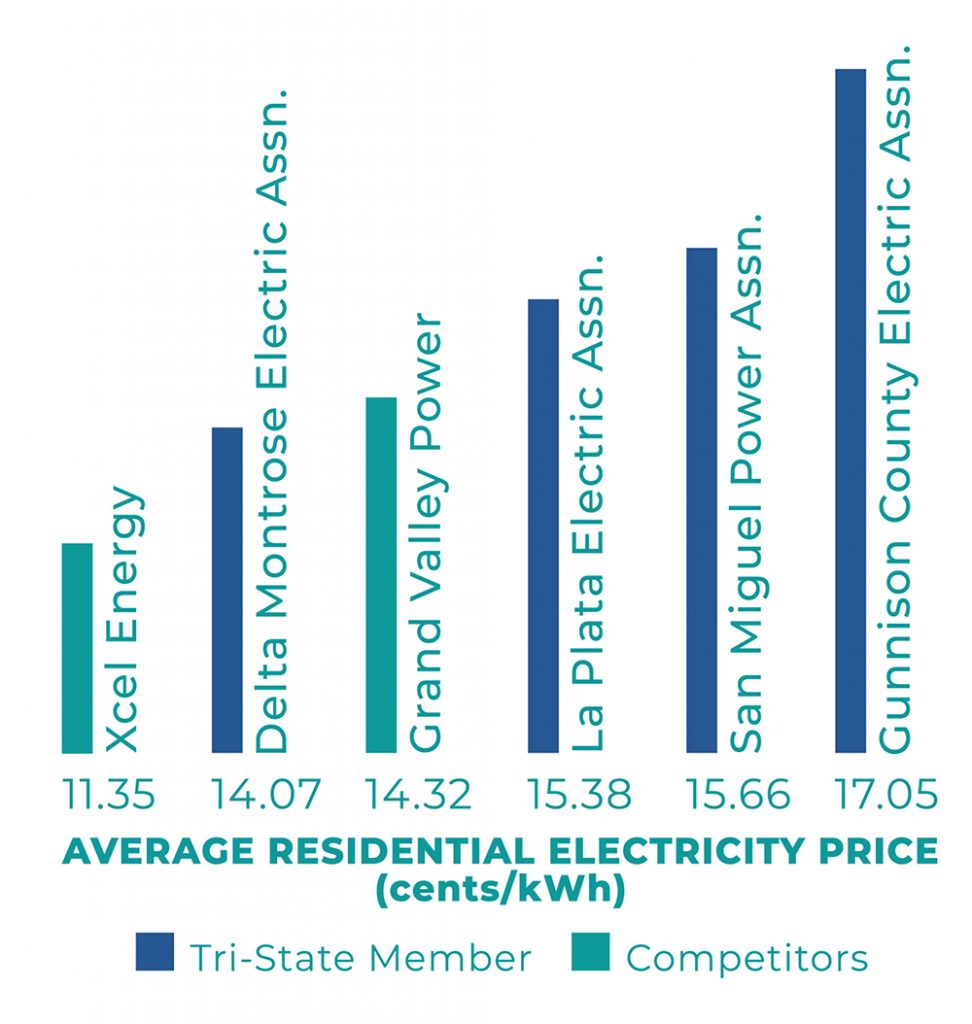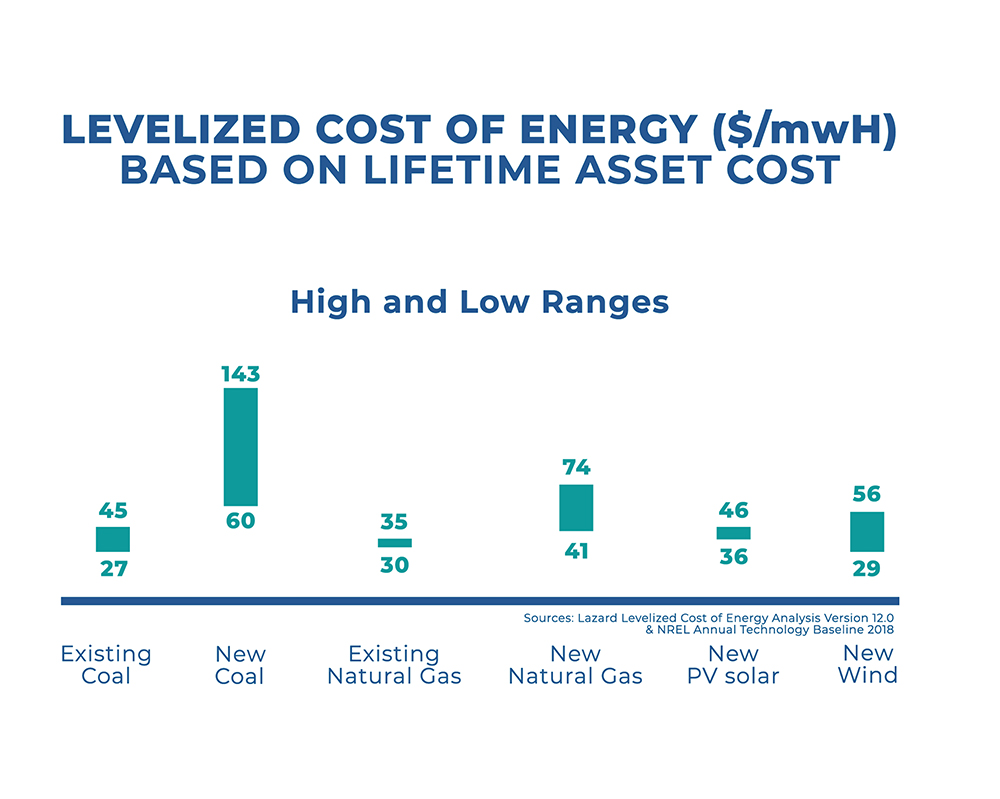- An Alliance For Community Action
- (970) 256-7650
- info@WesternColoradoAlliance.org
Reflections on a revolutionary year
As a millennial, I’ve spent three decades of my life watching climate news grow ever more dire as the U.S. political system refused, year after steady year, to do a thing about it. My generation was told time and again that one day, someday, we’d see renewables beat dirty fuels on cost, that the country would come to its senses, that something would have to give.
It was, in a sense, poetic justice that someday came for Colorado in 2019. On the heels of a year where historic fires scorched one sickened Colorado forest after another and a winter of unprecedented snows teased the return of water — only to see much of the state plunge into drought conditions just this month — the dam finally broke on climate action in our state.
The transformative policy achievements you’ll learn about below didn’t come easy. Western Colorado Alliance members, staff, and allies across the state spent many relentless years working to bring them home. A new generation of community and political leaders boldly stood up to some of the most powerful and cynical interests in modern society — and won. To everyone out there whoever knocked a neighbor’s door, sent a message to policymakers, made a perilous winter drive over Vail Pass, or sat through tedious hearing after tedious hearing, thank you. You got this done.

The Top Line
Just how revolutionary was 2019 for climate action in Colorado? If you only take two facts away from this article, let it be these:
- Wind and solar in Colorado are now cheaper than coal and on track to beat natural gas on price within a few years. Let me say that again — Colorado renewables are not just cleaner, they’re now hands-down cheaper.
- Colorado now has a Climate Action Plan with a roadmap to 90% greenhouse gas emissions reduction by 2050. This puts us boldly at the top of the national pack, presenting both challenge and opportunity for us to become a leader in new technology, policy, and careers.
A Historic State Legislative Session
State legislators were elected across Colorado last November on a promise of climate action. They delivered with over a dozen bills on energy and climate, with many legislators fighting to withstand a months-long onslaught by big polluters at the capital and on the airwaves. When the dust cleared at session’s end, Colorado had passed some of the nation’s most innovative energy legislation:
- HB19-1261 created a Colorado Climate Action Plan that will reduce greenhouse gas emissions 50% by 2030 and 90% by 2050, tasking the CO Air Quality Control Commission with implementation.
- SB19-236 placed Tri-State Generation and Transmission — a major power supplier to rural Colorado and the nation’s 6th dirtiest G&T entity — under the authority of the CO Public Utilities Commission for the first time ever; created a market-based bonding mechanism for fossil fuel power plant owners to retire facilities early and to finance new renewables investments; and authorized the Public Utilities Commission to factor the social and environmental cost of carbon pollution into electric utility planning decisions.
- HB19-1314 created a state Just Transition committee to write a statewide plan for coal community transition and requires every utility retiring a coal-fired power facility to craft a transition plan for affected workers and communities.
- SB19-096 authorized the CO Air Quality Control Commission to begin collecting climate emissions data from emissions sources within the state and to publish a state inventory of emissions sources accessible to the public.
- A group of bills advanced the market for electric vehicles in Colorado, including the extension of a hefty state-level $5,000 flat-rate tax credit for plug-in electric hybrid and battery electric vehicles, alongside new financing mechanisms for vehicle charging stations.
Leadership from Below
As the legislative session was unfolding, many rural electric associations and municipalities were stepping up to do their part. Here’s a roundup of the stand-out news from across the state:
- Glenwood Springs became the seventh city in the nation to be 100% powered by renewable energy, with an estimated savings to the city of $500,000 per year. Aspen achieved 100% renewable sources in 2015 and is now home to some of the lowest residential electricity rates in Colorado.
- Grand Valley Power, serving non-municipal residents of the Western Slope, announced plans to double its renewable supply to 60% by 2030.
- Holy Cross Energy, serving the Roaring Fork Valley and I-70 corridor, indicated it is likely to reach it’s 70% renewables goal a decade ahead of schedule.
- Pueblo’s City Council voted to enact a 100% renewables by 2035 pledge aimed to bring down soaring rates from Black Hills Energy.
- The Platte River Power Authority, owned by municipal utilities in Fort Collins, Longmont, Estes Park and Loveland — took a pledge of 100% renewables by 2030.
- Xcel Energy, Colorado’s largest utility, signed a memorandum of understanding with the city of Denver for 100% renewables as it moved forward with construction of the mammoth 500 MW Cheyenne Ridge Wind Project on 65,000 acres in eastern Colorado.

A Regulatory Showdown and Demands for Tri-State Reform
For decades, the rural electric associations that provide power to most of rural Colorado have relied on Tri-State Generation & Transmission for their power. The nation’s largest territorial G&T association, Tri-State has long relied on an aging fleet of coal-fired plants — financed by $3.4 billion in outstanding debt — that has left management “blinded by an almost religious dedication to fossil fuels,” according to former Colorado Public Utilities Commission Chair Ron Binz. Coupled with Tri-State’s famously burdensome contracts that require local electric associations to purchase 95% of their total load from the organization, this has shackled many Colorado communities to increasingly expensive electricity that is simultaneously contributing to climate change.
2019 saw several historic breakthroughs in public opinion on Tri-State. The Rocky Mountain Institute released a report finding that Tri-State would save consumers over $600 million by 2030 with a shift to renewables. The Delta-Montrose Electric Association, one of Tri-State’s largest members, finalized a negotiated buy out of its contract, estimating that it will save consumers $150 million over 10 years and increase its renewable energy supply. Western Slope Tri-State member co-ops La Plata Electric Association and San Miguel Power Association subsequently began exploring options for their own exits.
Tri-State responded to this growing wave of potential exits — and new climate legislation in Colorado and New Mexico — by abruptly seeking to move to Federal regulation. In less than two months, the association’s board voted to add a non-co-op member organization, triggering a change of legal status that would place Tri-State under the authority of the Federal Energy Regulatory Commission (FERC). Management claimed this move to regulation under one Federal authority was needed to simplify planning while detractors saw a naked attempt to evade state authorities newly energized to demand reform from the organization. Despite opposition from several Western Slope member co-ops, the vote was successful, though whether FERC accepts Tri-State’s application is still to be determined. Many voices, including state and federal legislators, are pushing back.
Simultaneously, the Colorado legislature voted to place Tri-State under the authority of the state Public Utilities Commission for the first time. The Commission will begin creating an Electric Resource Plan (ERP) with Tri-State this year, just as it has with Xcel and other entities. This ERP spells out critical details of how Tri-State will operate and invest in the future. Public comment on this historic process is open until mid-November.
Joel Dyar joined our Alliance as organizer for clean and renewable energy in 2019. As a 15-year veteran of community organizing in Colorado and six countries, Joel has worked to help social movements and everyday residents discover their power and make their voices heard on a broad spectrum of sustainability, social, and legislative issues. Joel brings a Masters of Community Development and graduate studies in renewable energy and green business to his work on behalf of our energy future.



